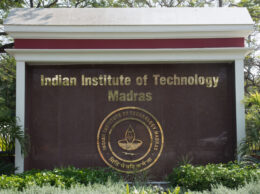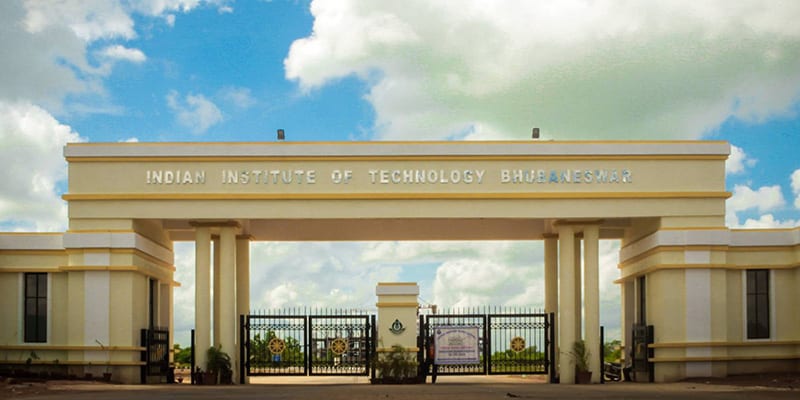CHENNAI : Indian Institute of Technology Madras Faculty have developed Artificial Intelligence Models and datasets to process texts in 11 Indian Regional Languages. This was taken up jointly with ‘AI4Bharat,’ a platform for building AI solutions for problems of relevance to India.
The researchers from IIT Madras and AI4Bharat released AI models and datasets for the following languages: Tamil, Hindi, Malayalam, Telugu, Kannada, Punjabi, Bengali, Odia, Assamese, Gujarati, and Marathi. The multilingual AI models and datasets developed through this initiative will provide the essential building blocks to students, faculty, start-ups and industry to work on Indian language tools and push the frontiers of technology.
The Faculty have made these cutting-edge resources open-source and completely free of cost, which can be accessed by anyone. These models are freely available and can be downloaded from a Github repository (https://indicnlp.ai4bharat.org/). An accompanying research paper describing the research methodologies and evaluation has been accepted at EMNLP-Findings (a companion publication at one of the top Natural Language Processing conferences).
Elaborating on this initiative, Dr. Mitesh M. Khapra, Assistant Professor, Department of Computer Science and Engineering, IIT Madras, said, “We have a very rich diversity of languages in our country. As we move towards a digital economy, it is important that our languages find a space online. This requires a lot of innovation in creating input tools, datasets, and AI models for Indian languages.”
For example, imagine a learner who posts a question on an e-learning platform in Tamil or Hindi or any other numerous Indian regional languages. There is a need for tools that can automatically process such questions written in Indian languages and classify them into specific topics.
“While such tools are available for English and other foreign languages, there are hardly any tools for Indian languages and this is the critical gap that we are trying to address through this initiative. These models are available free of cost as we want the entire country to benefit from them,” added Dr. Mitesh Khapra.
AI4Bharat is an initiative co-founded by Dr. Mitesh M Khapra and Dr. Pratyush Kumar from IIT Madras and works to solve India specific problems in a community-driven, open-sourced manner. Both Dr. Mitesh Khapra and Dr. Pratyush Kumar are also associated with the Robert Bosch Centre for Data Science and Artificial Intelligence.
Speaking about the technology behind this initiative, Dr. Anoop Kunchukuttan, a volunteer at AI4Bharat and the lead researcher on this project, said, “We have an urgent responsibility to take the rapid advances of AI and make them accessible to the common man. One way of achieving this is to improve interactions between humans and machines. That is where the field of Natural Language Processing (NLP) comes in. NLP is a branch of AI that deals with the interaction between computers and humans using natural language.”
Adding on, Dr. Pratyush Kumar, Assistant Professor, Department of Computer Science and Engineering, IIT Madras, said, “This initiative is one of the few attempts in Academia to develop and publicly release such large scale multilingual AI models containing millions of parameters trained on billions of tokens from 11 Indian languages, completely free and open-source.”
For the past one year, a team of researchers comprising students, faculty and volunteers from IIT Madras and AI4Bharat worked on collecting data and training powerful models for processing text written in Indian languages. The models take advantage of the similarities between Indian languages to make efficient use of data. With these models, the researchers have been able to push the state-of-the-art for Indian language processing on several tasks such as document classification, sentiment analysis, semantic matching, paraphrase detection and so on.
Highlighting the work done on Natural Language Processing, Dr. Pratyush Kumar said, “Modern NLP systems are driven by Deep Learning. A fundamental piece of these systems are language models, which capture meanings of words and sentences and their relations and require a large amount of data to train. The unavailability of such data has prevented the development of such models for Indian languages. As a result, Indian NLP has not been able to progress at the rate at which it should.”
Dr. Anoop Kunchukuttan added, “We really hope that start-ups and social initiatives working on Indian language technologies will be able to take our pre-trained models and adapt them to specific use cases by collecting smaller amounts of in-domain data.”
Mr. Divyanshu Kakwani, a Master’s student at IIT Madras and the Lead Student Researcher on this project, said, “I am happy to make a contribution to this project which has the potential to create impact. I hope our efforts inspire other students to work on Indian language technologies. All our models are publicly available and I am curious to see how others take this forward.”
The Research Team hopes that this initiative will serve as a ‘call to action’ for academia, government and industry to come together and develop bigger and more diverse datasets for Indian languages. Data drives AI technology and it is time to make a serious investment in building datasets for Indian languages.
Natural language processing is a subfield of linguistics, computer science, and Artificial Intelligence concerned with the interactions between computers and human language, in particular how to program computers to process and analyze large amounts of natural language data.









